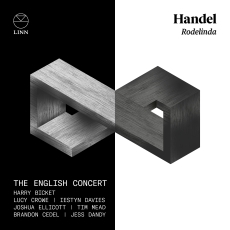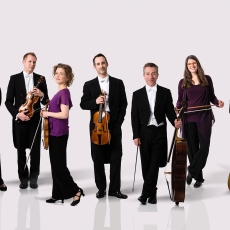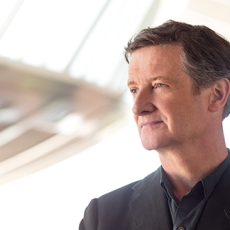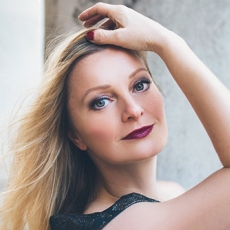The English Concert - Handel: Rodelinda - MusicWeb International
Handel was in an uncommonly inspired phase in the mid-1720s, when within less than a year he created three of his best operas: Giulio Cesare (premiered on 20 February 1724), Tamerlano (31 October 1724) and Rodelinda (13 February 1725), all three with librettos by Nicola Francesco Haym, who invariably drew the best from him. Haym’s source for Rodelinda was Paul the Deacon’s chronicle of tidings in seventh century Lombardy in northern Italy. French dramatist Pierre Corneille in the seventeenth century based a tragedy on that material – not a success – but in the early eighteenth-century librettist Antonio Salvi refurbished the drama, cutting out most of the politics and concentrated on the personal emotions, and it was this libretto that Haym versified for Handel.
The story is, as almost always in baroque operas, quite complicated and the easiest way to get the gist of it is through Wikipedia’s article. A thumbnail account goes like this: “Grimoaldo defeated Bertarido and usurped the throne. Bertarido fled and is believed to be dead but his friend Unulfo knows that he is hiding in the vicinity. Grimoaldo is betrothed to Bertarido’s sister, Eduige, but he has also fallen in love with Rodelinda, Bertarido’s wife. The evil Garibaldo, who is Grimoaldo’s counsellor, plans to take the throne for himself. Bertarido returns in disguise and he and Rodelinda meet secretly. They are discovered by Garibaldo who throws Bertarido in prison; Unulfo and Eduige manage to release him. Grimoaldo tries to find rest in a garden where he falls asleep. Garibaldo finds him and is ready to kill him with his own sword, but then Bertarido appears and kills Garibaldo but spares Grimoaldo, who gives up his claims to the throne and finally asks Eduige to marry him. Happy ending, and all the characters unite in a short jubilant chorus.”
Handel was a master at characterising the persons in his music, and even Mozart, who didn’t think too highly of fellow composers, said: “Handel understands affect better than any of us. When he chooses, he strikes like a thunder bolt.” This is particularly true about Rodelinda where all six characters are pictured in rounded portraits that make them believable individuals, human beings of flesh and blood. They also develop during the run of the opera, as Ruth Smith analyses in her very readable liner notes. Composing the work for some of the greatest singers of the period – Francesca Cuzzoni was Rodelinda at the premiere, Francesco Bernardi, better known as Senesini, was Bertarido and Francesco Borosini, with a range spanning from tenor to bass, was Grimoaldo – he had to satisfy his stars’ demands for virtuoso arias, and they all get their fair share of coloratura. No less than 8 arias fall to Rodelinda’s lot and Bertarido follows hard on her heels with 7; they also sing two duets. Grimoaldo doesn’t come away empty-handed, either, with 6 arias, while Eduige and Unulfo get 3 each and poor Garibaldo only 2 – but he is, of course, the ugly customer. There are also substantial portions of recitative, both secco and accompagnato, but they are mostly delivered swiftly and with strong dramatic power.
The technical demands are, naturally, high but besides the fireworks, which are in no way empty showpieces, there are many moments of repose and contemplation. The very first vocal number, after the rhythmically acute and colourful overture and the elegant minuet, rivetingly played, is Rodelinda’s sorrowful lamentation, Ho perduto, where she bemoans her husband Bertarido’s death. It is one of the finest laments in any Handel opera and it is deeply moving. But when the usurper Grimoaldo approaches her and declares his hitherto hidden love to her, she ignites and delivers a furious aria that tells him that she will never give in to him despite her devastating sorrow. Embellished, technically superb, glorious singing. Within less than one minute she expresses diametrically extreme feeling. The psychologist Handel at work.
In the next scene Bertarido, who is far from dead but will not yet reveal that he is alive, arrives and sees the monument erected to his memory. He is as deeply in love with Rodelinda as she is with him and in the famous aria Dove sei, amato bene? he pours out his feelings. This is also one of the many musical highlights in this opera, and here the dethroned King, who otherwise is a hot-head, shows his softer side.
Among further masterly arias in the first act Rodelinda’s Ombra liante, urne funeste is beautifully scored with obbligato recorder solo. In act II Bertarido sings another touching lamentation, Con rauco mormorio, and again the scoring is superb. Rodelinda counters in a following scene with the beautiful love song Ritorna, o caro, divinely sung. But all the arias have something to offer, be it technical brilliance or dramatic intensity (often in combination). In fact, it is a treat just to lean back and enjoy the music, without bothering about the text. And there are many magical moments. The most magic – and here you must follow the text – is Grimoaldo’s recitativo accompagnato near the end of the opera. He is alone in the royal garden. His soul is in a turmoil. He is haunted by three furies armed with many whips, and remorse torments him “calling me faithless, perjurer, usurper, villain and tyrant”. But here comes the turning-point, a transformation in his soul, and the orchestra tells us that more convincing than a thousand words. Grimoaldo has found comfort and peace, become a better human being: “a peaceful heart is as precious as the throne.” He sings his aria Pastorello d’un povero Armento, where the text says: “The shepherd of a poor flock may sleep content beneath the shade of a beech or laurel; I, king of a magnificent realm, can find no peace under the shade of purple and gold.” He falls asleep and the eval Garibaldo appears, intent on killing him. At that moment Bertarido, sword in hand, rushes in and chases Garibaldo offstage.
The whole scene must have been a thriller at the King’s Theatre in the Haymarket back in 1725, and it still is a nail-biter almost 300 years later, thanks to Haym and Handel. But they are extremely well supported by Harry Bicket and The English Concert and the six top-rank soloists. I have already commented on the superb playing and must add that the choices of tempo are unerringly apt. As a listener one sits from the start on the edge of the chair, eager to follow the outcome of the story.
The soloists all have the technical and emotional capacity to tackle the admittedly advanced challenges of the music. Lucy Crowe, whose Gilda in Rigoletto at Covent Garden was an eye-opener for me almost ten years ago, is a fantastic Rodelinda, a role she did at the Dutch National Opera in January 2020. She is dramatic and expressive in recitatives, has beauty of tone and warmth in the lyric moments and negotiates the virtuoso cascades with aplomb. The workload for the soprano in a stage performance is enormous; here recorded over a period of almost a week she could, hopefully, come fresh to every new take. A resounding success in every respect. The same goes for Iestyn Davies in Bertarido’s role. The technical demands are just as challenging for him and he has few, if any, superiors in the world today. Technique and dramatic conviction are true hallmarks for him and together they also match each other to perfection in the two duets. Joshua Ellicott as Grimoaldo is an excellent actor and his technical ability is also superb. His tenor may not be intrinsically beautiful – but he is, on the other hand, an evil character most of the time – and his expressivity is certainly tangible. Brandon Cedel’s Garibaldo is the other bad boy, and his powerful bass-baritone is impressive with blackish bottom notes. Jess Dandy’s Eduige and Tim Mead’s Unulfo are also impressive in their roles and the only problem – if it really is a problem – is that Mead and Davies, who sing a lot together, are a little tricky to tell apart. Their timbres are similar. Ms Dandy’s fruity contralto is, however, very distinctly individual. With excellent documentation and recorded sound in the demonstration class this is in every respect an utterly recommendable production of one of the best baroque operas.
What about competition? There was an old Westminster recording under Brian Priestman from 1964, which has been available on Deutsche Grammophon (DG 4792343), but it is uncertain whether it still in circulation. The almost contemporaneous Decca recording under Richard Bonynge with Joan Sutherland in the title role is, of course, a classic, but it is abridged and stylistically rather dated. It is now available on Australian Eloquence (4806105 – review of Pristine Audio version). Nicholas Kraemer’s 1996 recording on Virgin Classics is today available on Erato 5452772; and Alan Curtis’ 2005 recording on DG Archiv (4775391), which I have not heard, was hailed by BBC Music Magazine in 2007: “Of available recordings this set has the edge, for its greater dramatic urgency and richer characterisation”. The latest I have come across is a live production on Dynamic CDS7724 from 2010, which I reviewed favourably some years ago. Conducted by Diego Fasolis and with Sonia Ganassi and Franco Fagioli as Rodelinda and Bertarido, this is a worthy alternative, if one is prepared to accept stage noise and applause. The two main characters are splendid, and Fagioli is probably the closest we can come today to the sound a castrato alto produced. For overall excellence, however, I give my vote to Harry Bicket and his crew. This recording should satisfy every lover of baroque opera!




